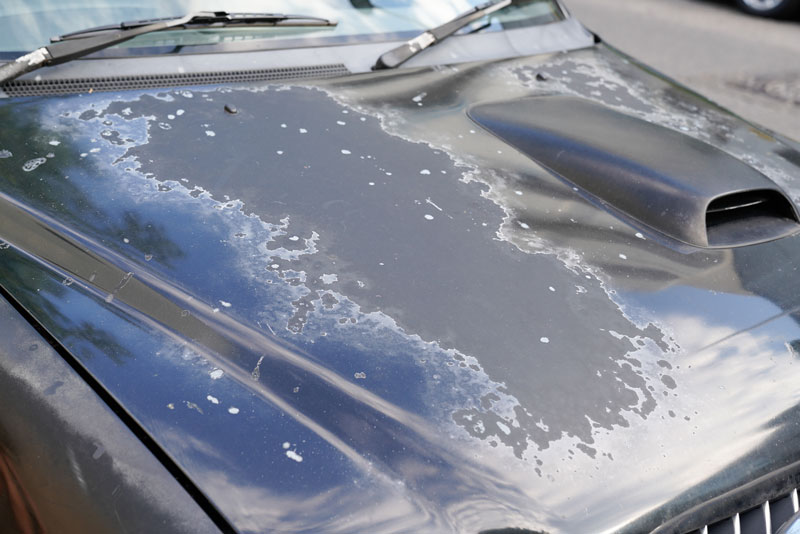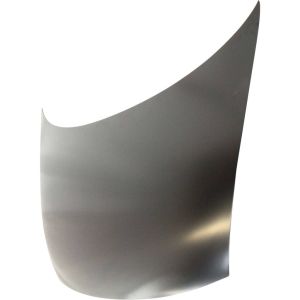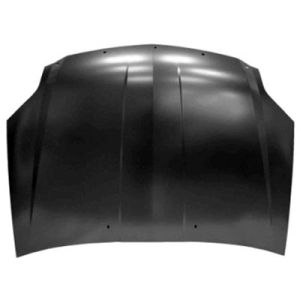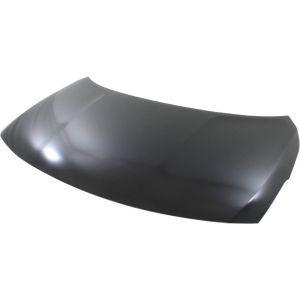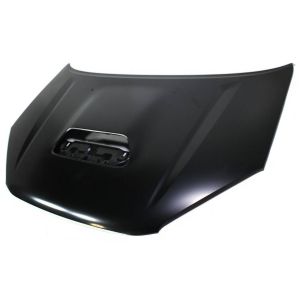Car enthusiasts often take pride in the appearance of their vehicles, and one crucial aspect that contributes to the overall aesthetic is the paint. However, various factors can lead to car paint damage, diminishing the charm of your prized possession. In this article, we will delve into the causes of car paint damage and explore effective ways to protect it.
Environmental Factors
Sunlight and UV rays
The harsh rays of the sun can be detrimental to your car's paint, causing fading and deterioration over time. UV rays penetrate the clear coat, leading to discoloration and a lackluster appearance.
Rain and water damage
While rain is a natural element, it can bring along contaminants that harm your car's paint. Acidic rainwater, if not promptly removed, can lead to corrosion and permanent damage.
Dust and airborne contaminants
Particles in the air, such as dust, pollen, and pollutants, settle on your car's surface. Over time, these contaminants can eat away at the paint, creating a dull and unappealing finish.
Road Hazards
Gravel and stones
Driving on gravel roads or following construction vehicles can result in rocks and stones hitting your car. These impacts can cause scratches, chips, and even dents.

Bird droppings
Bird droppings contain acidic compounds that can be highly corrosive to paint. If not cleaned promptly, these droppings can etch into the surface, causing irreversible damage.
Tree sap and pollen
Parked under trees? Beware of sap and pollen, which can adhere to your car and, over time, create stubborn stains that are challenging to remove without proper care.
Poor Maintenance Practices
Infrequent washing
Neglecting regular car washes allows dirt and contaminants to accumulate, accelerating paint damage. A simple and consistent washing routine can go a long way in preserving your car's paint.
Incorrect washing techniques
Using abrasive materials or harsh chemicals during washing can lead to micro-scratches and swirl marks on the paint. Adopting proper washing techniques is crucial for maintaining a flawless finish.
Lack of waxing and protection
Waxing provides a protective layer on the paint, shielding it from environmental hazards. Failure to wax regularly exposes your car to the elements, increasing the risk of damage.
Physical Damage
Scratches and dents
Daily wear and tear can result in scratches and dents. Whether from minor accidents or brushing against objects, these damages compromise the integrity of the paint.
Impact from other objects
Parking too close to other vehicles or structures increases the likelihood of accidental impacts. Even a gentle bump can lead to noticeable paint damage.
Harsh weather conditions
Extreme weather conditions, such as hailstorms or intense sunlight, can be tough on your car's exterior. The paint may chip or crack under severe weather pressure.
Tips for Protecting Car Paint
Preserving your car's paint requires a proactive approach. Here are some effective tips to ensure your vehicle maintains its showroom shine:
Regular washing and detailing
Frequent washing removes contaminants and prevents them from causing long-term damage. Detailing goes a step further, addressing hidden areas and enhancing overall cleanliness.
Applying protective coatings
Invest in quality paint sealants or ceramic coatings to provide an extra layer of defense against environmental elements. These coatings offer extended protection and make cleaning easier.
Parking in shaded areas
Whenever possible, park your car in shaded areas to reduce prolonged exposure to sunlight. This simple practice can significantly minimize UV damage and fading.
Choosing the Right Car Care Products
Importance of high-quality car wash soap
Selecting a gentle, pH-balanced car wash soap ensures effective cleaning without harming the paint. Avoid using harsh detergents, as they can strip away protective layers.
Selecting the right wax or sealant
Choose a wax or sealant suitable for your car's paint type. Regular application provides a glossy finish while safeguarding against contaminants and UV rays.
Using specialized cleaners for specific issues
Address specific problems like tree sap or bird droppings with targeted cleaners. These products dissolve contaminants without causing harm to the underlying paint.
Professional Services
Benefits of professional detailing
Professional detailers have the expertise and tools to address intricate paint issues. Regular detailing sessions can rejuvenate your car's appearance and extend its lifespan.
Paint correction and restoration
If your car's paint has suffered damage, consider professional paint correction services. These experts can remove imperfections and restore the paint to its original glory.
Ceramic coating for long-term protection
For long-term protection, invest in ceramic coating. This innovative solution forms a durable, hydrophobic layer that repels water, dirt, and contaminants.
DIY Techniques
Homemade car care solutions
Explore DIY solutions for basic car care needs, such as cleaning solutions and quick detailing. Simple recipes using household items can keep your car looking pristine.
DIY scratch removal methods
Minor scratches can often be addressed with DIY methods. From toothpaste to scratch repair kits, there are various options for tackling superficial damage.
Tips for touch-up painting
Master the art of touch-up painting to address small chips and scratches. Match the paint color accurately, and apply with precision for seamless repairs.
Protective Accessories
Car covers
Invest in a high-quality car cover to shield your vehicle from the elements. A cover acts as a barrier against sunlight, rain, and other potential hazards.
Paint protection film (PPF)
Consider applying a paint protection film to vulnerable areas of your car. PPF offers an additional layer of defense against rocks, bugs, and road debris.
Mud flaps and guards
Installing mud flaps and guards helps prevent debris from being thrown onto your car's paint. These accessories minimize the risk of chips and scratches.
Importance of Timely Repairs
Addressing small damages promptly
Procrastination can exacerbate paint damage. Address small damages promptly to prevent further deterioration and maintain your car's resale value.

Preventing rust and corrosion
Untreated scratches can lead to rust, compromising the structural integrity of the car. Timely repairs prevent rust formation and protect the underlying metal.
Enhancing the overall lifespan of the paint
By adopting a proactive approach to maintenance and repairs, you contribute to the longevity of your car's paint. Regular care ensures a vibrant and appealing exterior for years to come.
Common Myths about Car Paint
Separating fact from fiction
Explore common myths surrounding car paint, such as the idea that dark colors attract more heat. Debunking these myths helps car owners make informed decisions about paint care.
Debunking misconceptions about paint care
Challenge misconceptions, such as the belief that frequent washing harms the paint. Providing accurate information empowers car owners to care for their vehicles effectively.
Environmental-Friendly Practices
Eco-friendly car care products
Opt for environmentally friendly car care products to minimize your ecological footprint. Many manufacturers offer biodegradable options without compromising effectiveness.
Responsible disposal of cleaning materials
Dispose of cleaning materials responsibly to prevent environmental harm. Follow local regulations for the proper disposal of car care products.
Sustainable car care routines
Incorporate sustainable practices into your car care routine. From water-efficient washing to eco-friendly products, small changes can contribute to a greener approach to car maintenance.
Conclusion
In conclusion, understanding the causes of car paint damage empowers car owners to take proactive steps in preserving their vehicle's appearance. By addressing environmental factors, adopting proper maintenance practices, and exploring protective measures, you can ensure your car maintains its showroom shine for years to come.
FAQs (Frequently Asked Questions)
How often should I wax my car?
- Regular waxing is recommended every 3-4 months, but frequency may vary based on factors like weather conditions and usage.
Can I use dish soap to wash my car?
- It's not advisable, as dish soap can strip away protective coatings. Opt for a pH-balanced car wash soap.
Are ceramic coatings worth the investment?
- Yes, ceramic coatings offer long-term protection, making them a valuable investment for preserving your car's paint.
What should I do if my car has deep scratches?
- Consult a professional for paint correction services to address deep scratches and restore the paint.
Is professional detailing necessary for all cars?
- While not mandatory, professional detailing enhances the overall appearance and longevity of your car's paint.
